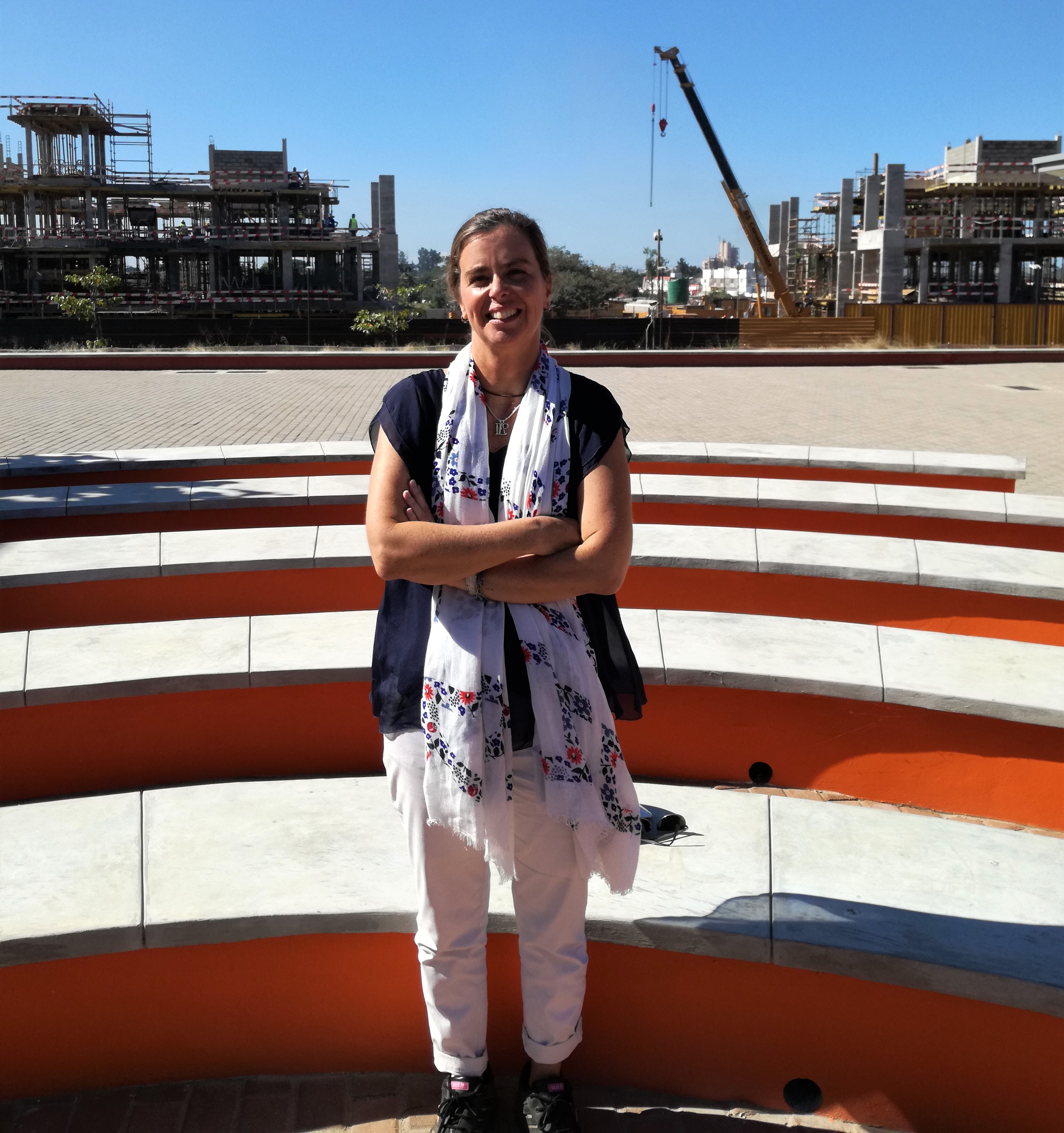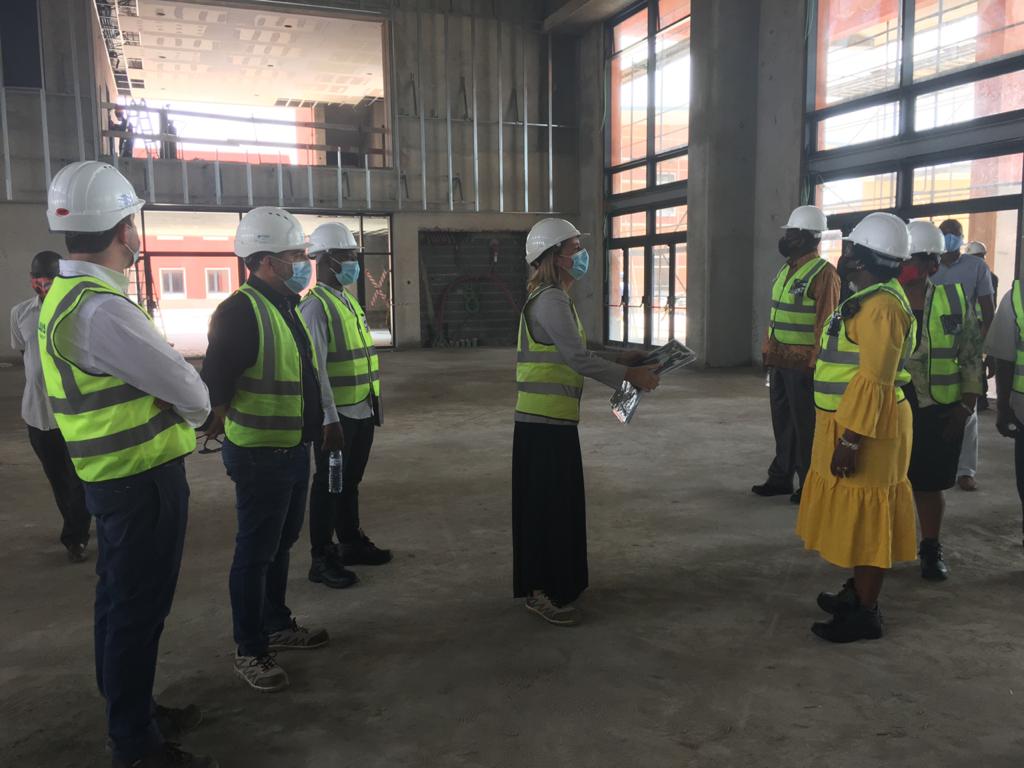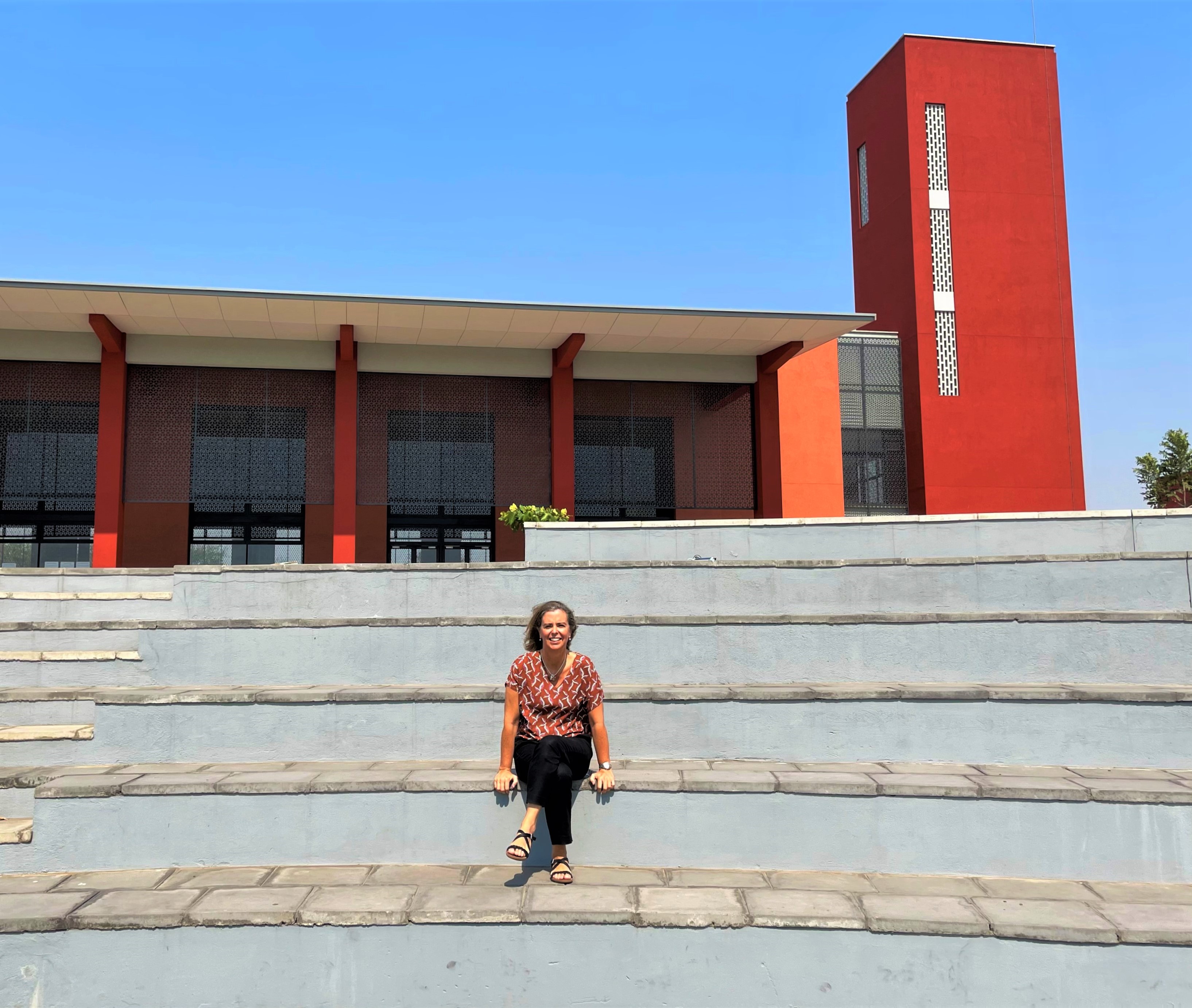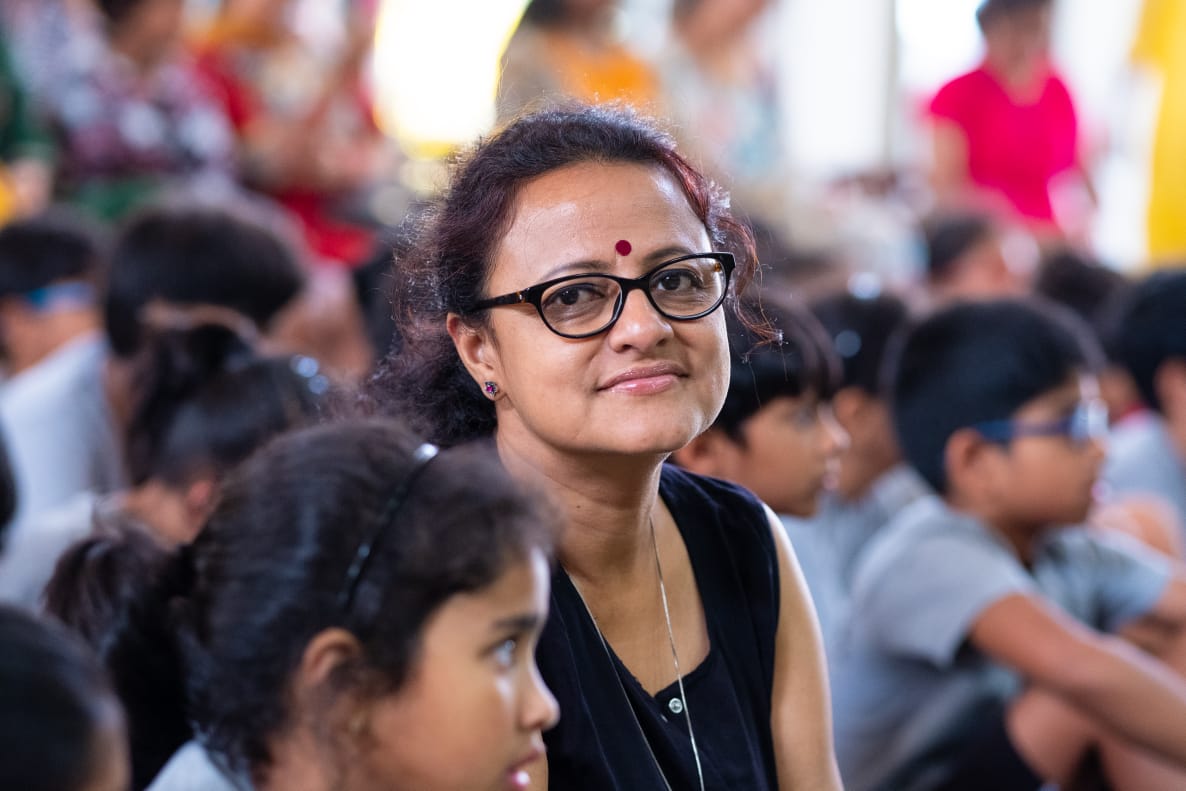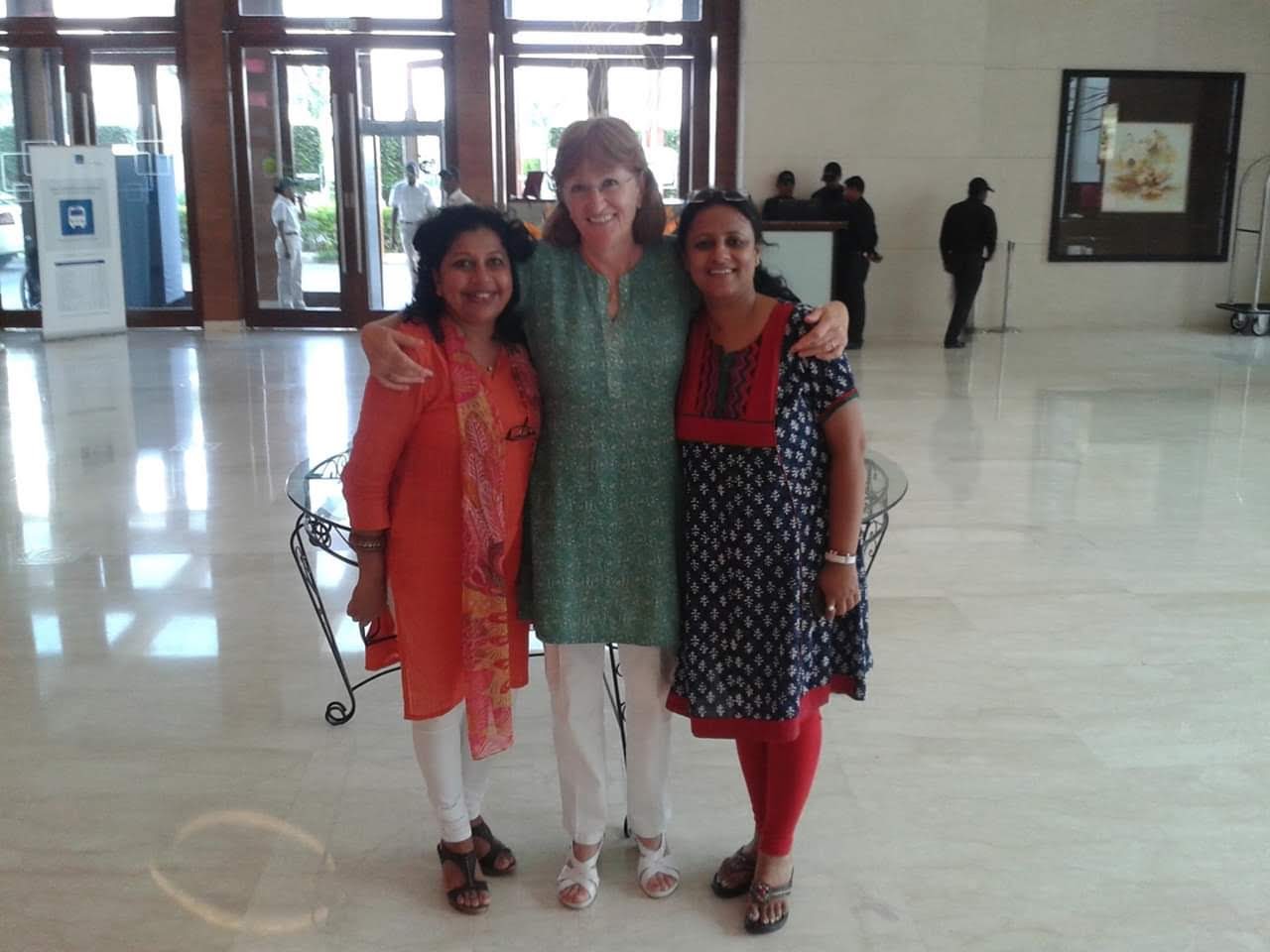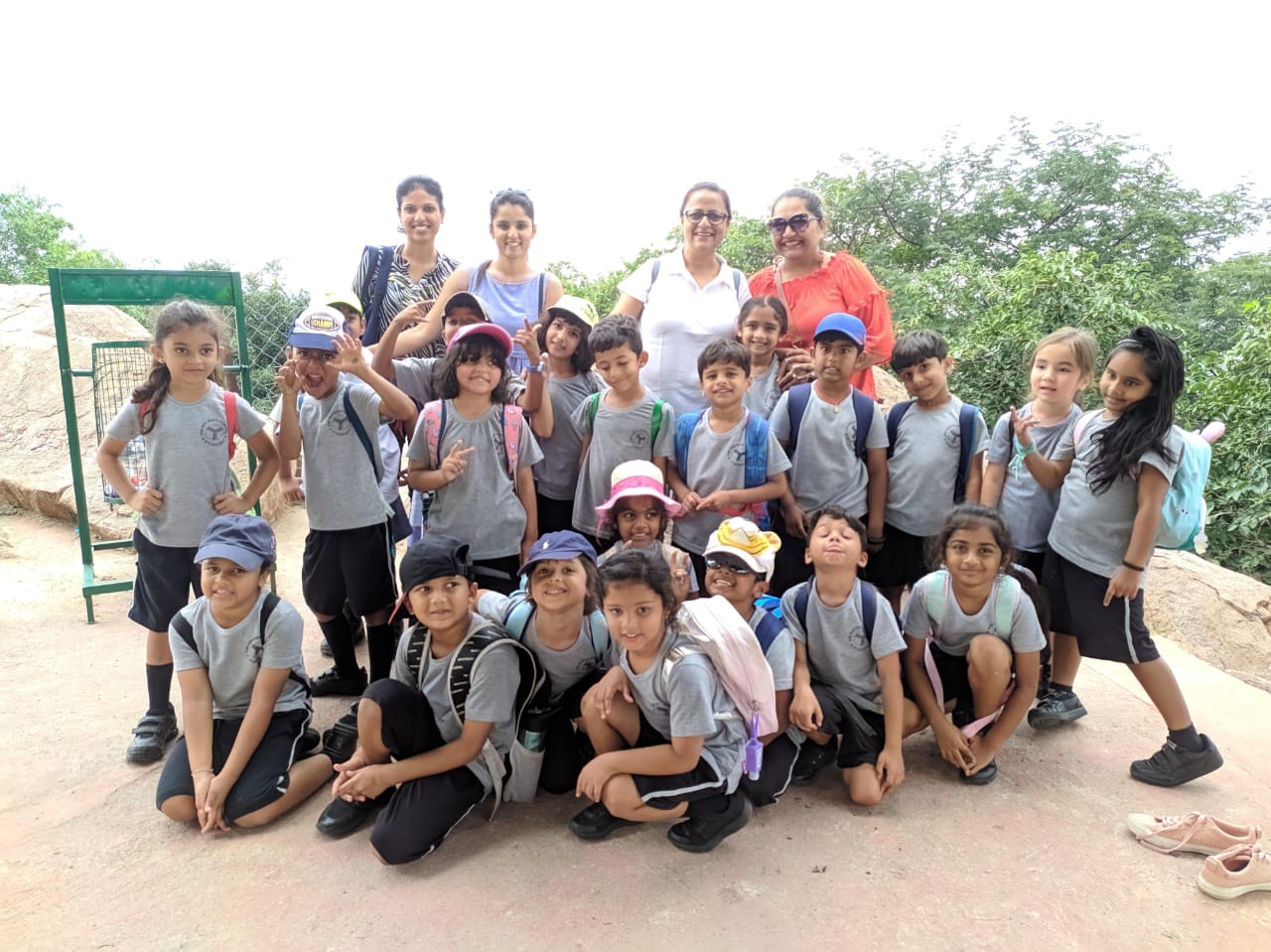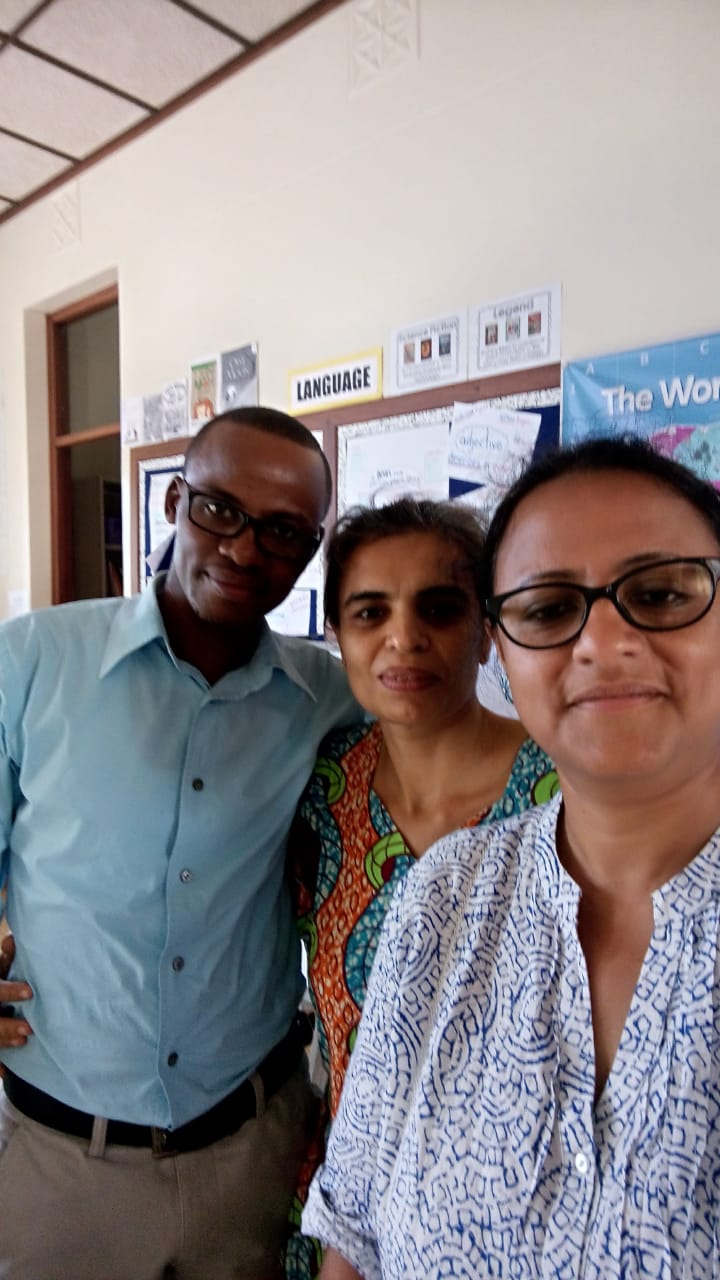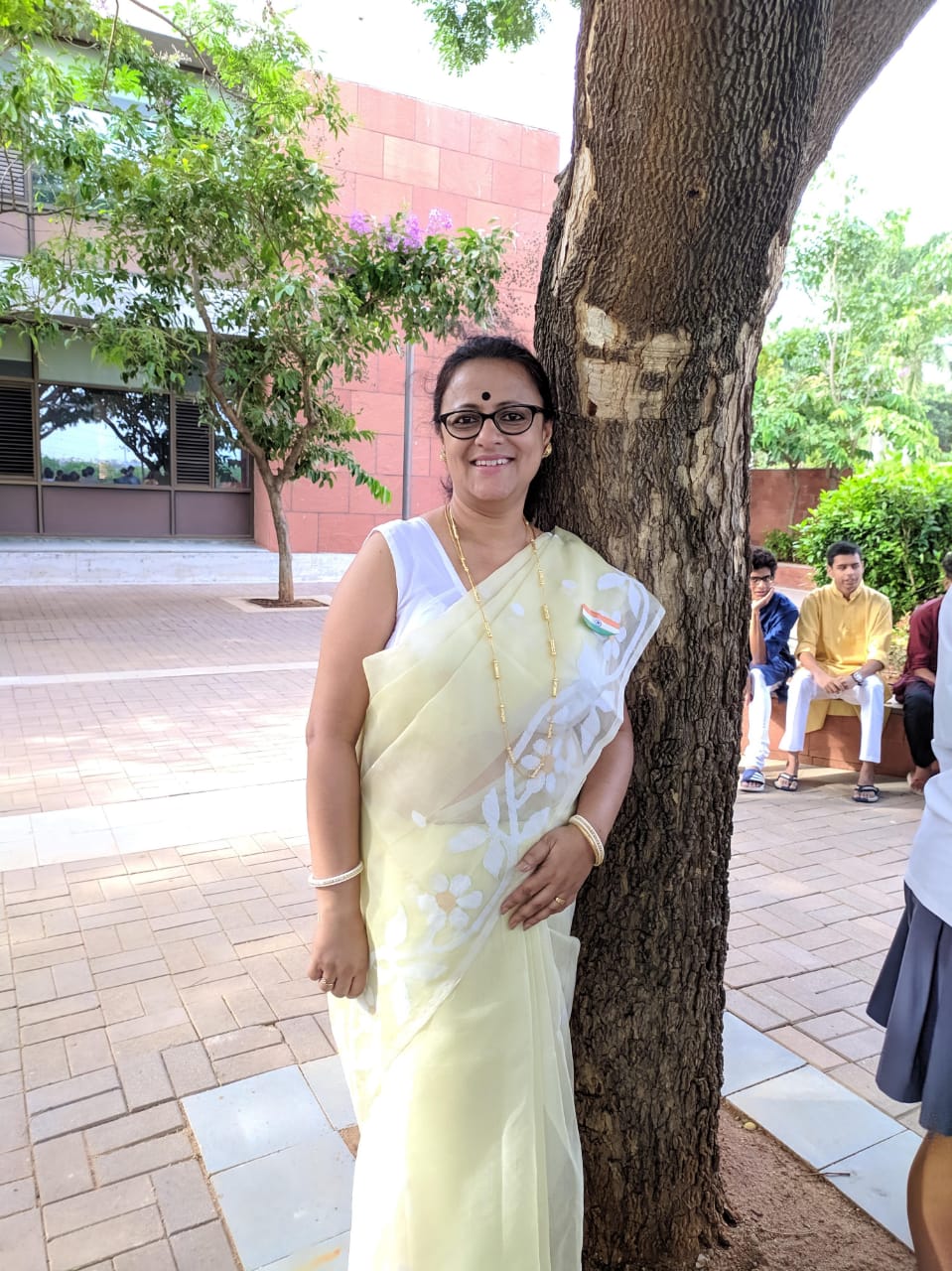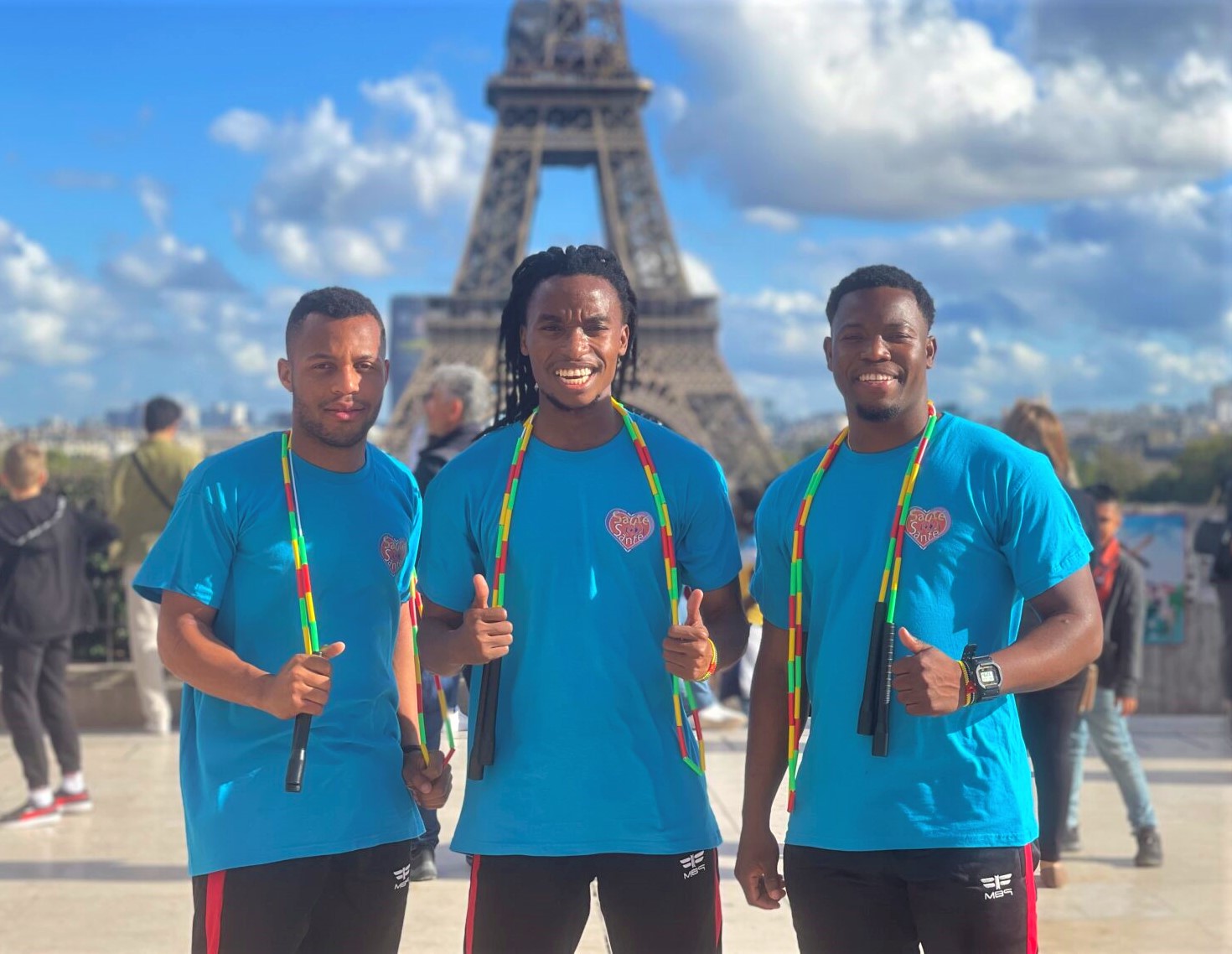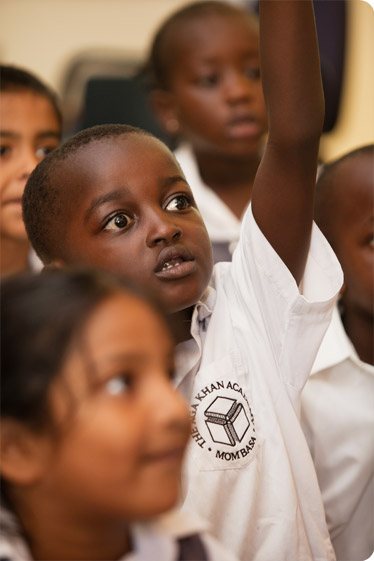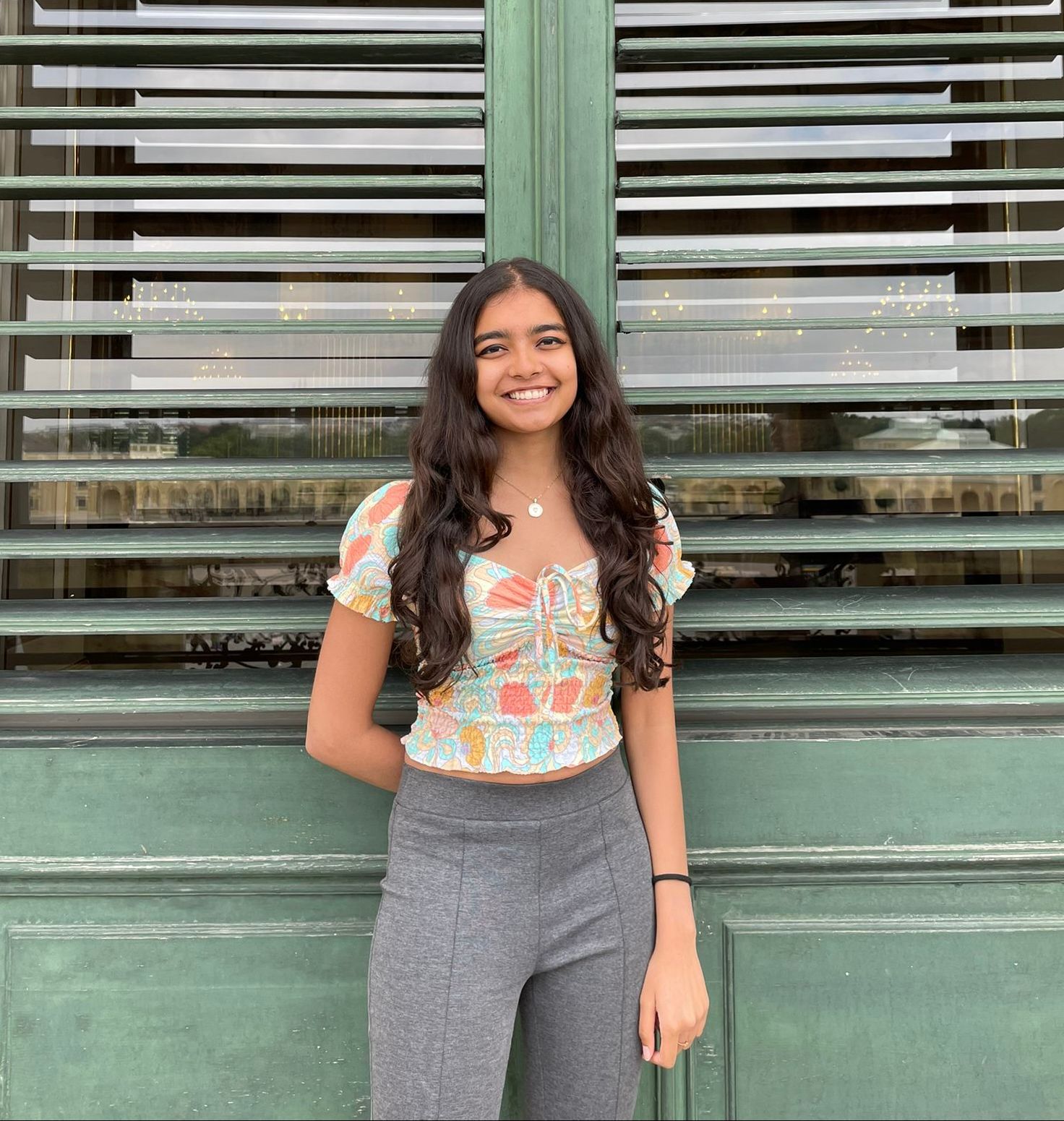Laura Brandão: Building the AKA Maputo campus from the ground up
Laura, who is originally from Portugal and a civil engineer by trade, joined the AKA Maputo in July 2017. She began her involvement with the Academy’s construction project in 2012 as the general manager of an outsourced project management company.
“It’s interesting because, as the general manager of my former company, I was involved since the inception of the Academy as I was appointed to the project management of the AKA Maputo’s first phase, which is the phase that represents the opening of the Academy’s Early Years Centre,” Laura said. “In this way, I have been involved since the very beginning of the Academy’s construction, and this has equipped me with both an internal and external perspective of the Academy.”
Laura attained her undergraduate degree in civil engineering from Instituto Superior Técnico in Lisbon, Portugal. She then moved to Leuven, Belgium in pursuit of a Master’s qualification in the conservation of historic towns and buildings at the Katholieke Universiteit.
Upon the completion of her master’s degree, Laura returned to Portugal where she jump-started her career in project management. “I started my career in an area that slightly differed from my master’s qualification,” she said. “This is because, at the time, Portugal was not very focused on the restoration of historical buildings and monuments. So, I started my career in project management.”
The company Laura worked for at the time later invited her to join their newly-launched branch in Mozambique. She arrived in Mozambique in September 2010 and worked for this company until 2017 as a general project manager, where she did a lot of project management work in Mozambique.
In 2017, the company decided to cease their activity in Mozambique but Laura wanted to remain in the country. Every cloud has a silver lining, as it was at this time that Laura received an invitation to join the AKA Maputo as the Academy’s senior project manager and client representative.
"A reputable team of international and local architects and engineers have designed the Academy to be in line with Aga Khan Development Network’s pursuit of excellence in both the physical facilities, as well as the quality of education intended to be imparted at the finished facility,” Laura said. “I am glad I was selected to execute this team's vision for the AKA Maputo."
Praising the overall mission and vision of the Aga Khan Academies, Laura places great emphasis on the important role that the AKA Maputo plays in the betterment of the Mozambican educational sector and, ultimately, in the Mozambican society.
“This is an exceptional project because of its concept, dimension, challenge to have been built in Mozambique and, on top of all, the purpose that it develops,” Laura said. “The mission of educating and developing students to become highly qualified and socially responsible professionals and leaders, which Mozambique needs to support its socio-economic development, is what makes it an absolute honour to have been chosen to lead this project. It is an emblematic project.”
With the AKA Maputo’s significantly diverse student and staff population, Laura has found engaging with multinational colleagues to be interesting and positively challenging. She gained a thorough understanding of how the Academy’s leadership team perceives the Academy and has applied this to the construction of the campus.
“Sometimes it can be challenging because each individual has their own ideas, and sometimes it can be difficult to incorporate all of these ideas in the project development,” Laura said. “But, overall, I think my colleagues are satisfied with my work as we always try to include all of their ideas within our budget. Ultimately, the buildings are for them, for the teachers, staff members and, on top of all, for the students.”
However, the biggest challenge Laura faced was the Academy’s construction since international lockdowns eased due to COVID-19. Reflecting back, Laura said she and her team had to ensure the pandemic did not severely impact the development of the AKA Maputo. This required strong team collaboration, dedication and mutual support.
“Post-COVID-19 on a global level, particularly in terms of material costs, import costs and the lack of transportation, was quite difficult to digest and it was a fight,” Laura said. “Nevertheless, the fact that we did not have a single positive case during the pandemic is very rewarding. And although I am leading the project, it has been a great team effort.
“I have received a lot of support from my director in Geneva and I think, all together, we are very successful. And when I say we are a team, I don’t only mean the construction team – design team, project management team, contractors and project colleagues – but I mean the Academy in its entirety as led by the Head of Academy, who closely collaborated with me to bridge the gap between construction and school.”
“The Academy was planned in phases to allow for the school to grow during construction, and the manner in which the academic team always understood the "conflicts" between construction and the normal school life were fantastic. So from the leadership team, right down to each and every colleague, we are all a team and should be very happy at the results that we have achieved amidst these uncertain times.”
Reflecting on the various beautiful spaces and facilities at the AKA Maputo, Laura says it’s rather difficult to choose only one building as her favourite. But, aside from the Court of Palms – an area on campus that has 24 Royal palms standing tall and proud – one of her favourite spaces at the Academy is the Moyo, which means heart in Swahili. The Moyo is the Academy’s amphitheatre where whole school assemblies and other fun events are hosted.
“For me, each building in the Academy has its own story and they are all very dear to me,” she said. “But I think that the Moyo is, in fact, the heart of the Academy, and the contrast of the Moyo against the rest of the buildings at the Academy is the most emblematic area in my eyes.”Being directly involved in the development of the AKA Maputo from the start, Laura has observed how the rapid growth of the Academy has positively impacted the students and staff, alike. “It has been very gratifying to witness the joy of the students and all of the school staff,” Laura said. “They are amazed at the level of facilities that are being provided at the Academy. I have no doubt in mind that the Aga Khan Academy Maputo is the school with the highest quality infrastructures in the country.”
Videos
The videos below provide more information about the Aga Khan Academy Maputo and the Aga Khan Academies programme.
Pages
MYP parent-teacher conference
Middle Years Programme (MYP) students from Grade 6-8 will have a virtual parent-teacher conference on Friday, 7 May 2021. Details have been shared with parents via email.
Laboni Banerjee: cultivating community wherever she goes
Laboni was immediately attracted to AKA Hyderabad because of the vision and mission of His Highness the Aga Khan for the Aga Khan Academies. She found the values of the Academy to be more aligned with her own ethos than the school she was previously working at before joining the Academy.
“Over the course of 10 years at the Academy, I have found myself a part of a vibrant and caring community,” Laboni said.
When joining the Academy in 2010, Laboni recalls it being a much smaller school then, especially the International Baccalaureate (IB) Primary Years Programme (PYP). There were only seven PYP teachers and the Junior School principal at the time, Diana Smith who started the PYP at the Academy, along with Sreelatha Kumar, who was the PYP coordinator at the time and is now the Junior School principal. AKA Hyderabad received the Diploma Programme and Middle Years Programme authorisation in 2012 and 2013, respectively. The latter year is when Laboni remembers seeing notable growth in both students and faculty at the Academy.“Early years in the PYP were busy,” Laboni said. “During this time, I was also focusing on identifying myself as a member of the PYP team and growing with the school.
Over the course of her time at AKA Hyderabad, Laboni has taken on various roles. Along with being a Grade 3 teacher, Laboni took a role in the PYP reading and writing assessment in which she collected evidence and data. Laboni also helped with the Admissions Department and was responsible for checking the vocabulary of students applying to the Academy. Reflecting back, Laboni said she greatly appreciated this role because it allowed her to build a special relationship with parents and students from the very beginning of their Academy journey.
“While working with the Admissions Department I valued meeting a large number of people who were enthusiastic and eager to learn more about the PYP in the early years.”
From 2012–2014 Laboni helped with AKA Hyderabad’s Outreach Teacher Training programme, which is a core part of Academies’ Professional Development Centre (PDC) that trains local teachers around the community in various subject areas and enhances their pedagogical skills.
A few years ago, Laboni also had the opportunity to travel to the Aga Khan Academy in Mombasa, Kenya where she truly began to appreciate the pluralistic approach to education and diverse cultures and backgrounds the Academies values and emphasises. During her time in Mombasa, Laboni met Titus Mutemi, who was a recent graduate of the Teacher Preparation Programme – a programme provided by the Academies that trains teachers to become IB educators in their communities – and is now the PYP coordinator at AKA Mombasa. Laboni recalls Titus being filled with great enthusiasm and eagerness as he wanted to know everything about her class including the assessment techniques, books she has students read, any material created for the class and much more.
“Partnering with Laboni was such an enriching experience,” Titus said. “Her flexibility and open-mindedness made our collaboration easier and enjoyable. Years have gone by and yet her enthusiasm and unique way of engaging with the young learners is still memorable.”When AKA Hyderabad transitioned to online learning in March 2020 due to COVID-19, Laboni said there were a few challenges she faced but was able to overcome due to the support she received from the Academy.
“In the PYP we have always used technology as a learning and teaching tool. However, when we shifted to complete online teaching, building the bridge with new students I had never met before was the biggest challenge. With physical teaching, I was able to bond with my students on a personal level, but this changed with distance learning.
However, the Academy always supported me and made me feel comfortable working on a virtual platform with a new group of learners. Assigning me to be a part of various online professional development sessions was immense support as it helped me develop my understanding of the application of various teaching tools. The virtual learning and teaching also enabled me to look at my own teaching philosophy through a different lens and reimagine my teaching strategies. Now, it is my greatest joy and top priority to see my students online and have personal conversations with them.”Laboni said she cannot imagine her future without the Academy being a part of it. She is always involving herself in different roles throughout the Academy in order to connect with more students beyond the PYP and see how they turn their passions into reality. Laboni also said she is fortunate to be a part of a community that is continuously supportive and where she is encouraged to grow each day as an educator and individual.
“The greatest part about delivering education at the Academy and being a part of its community is that every day is a learning experience for me. I am always excited to see my students become open-minded young adults, chasing their greatest passions in life and thinking about how to make the world a better place for all.”
Videos
The videos below provide more information about the Academies and glimpses into student endeavours at the Aga Khan Academy Mombasa.
Pages
Videos
The videos below provide more information about the Academies and glimpses into student life at the Aga Khan Academy Hyderabad.
Pages
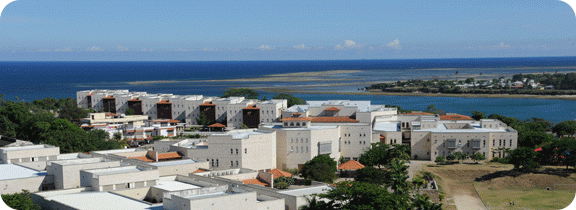
About the Academy
The Aga Khan Academy Mombasa is an International Baccalaureate World School. It is the first in the network of Aga Khan Academies established by His Highness the Aga Khan.
The Academy features state-of-the-art facilities, a multicultural student body, and an experienced team of educators and staff.
We provide students with education of the highest standard in order to prepare them for lives characterised by leadership and service.
Admission to the Academy is means-blind and is based on merit. We consider all eligible students regardless of socio-economic status.
A culture of excellence
As with all the Aga Khan Academies, we are committed to excellence in all aspects of education. This commitment includes the academic curriculum as well as the campus where students live and learn.
Our campus is architect designed and purpose built. It features state-of-the-art classrooms and resource areas, and extensive sports facilities. These outstanding facilities provide an inspiring environment for both students and staff.
At the Academy, we strive to create a balance between academic demands, sports, cultural activities and community life. We challenge our students to be intellectually inquisitive and socially conscious. We also encourage them to respect and appreciate other people’s cultures, social structures, values and beliefs.
A rigorous academic programme
Our academic programme has been developed through the implementation of the widely-recognised International Baccalaureate. The programme is designed to challenge students of all backgrounds.
Our aims for our students include:
- Promoting academic excellence
- Enhancing analytical and study skills
- Building leadership skills
- Fostering an ethical outlook and sense of civic responsibility
- Developing an understanding of global issues
- Encouraging creativity
Experienced local and international teachers lead our programmes. Faculty members are up-to-date with the best educational practices. They are committed both to their students’ learning and to their own continuing professional development.
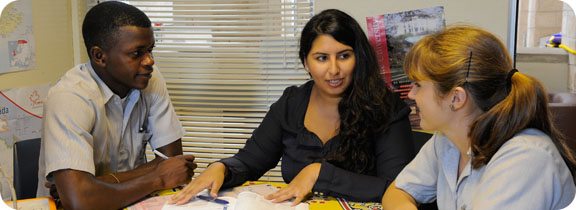
Teacher Professional Development
Promoting excellence in teaching, both on campus and more broadly, is a fundamental goal of the Aga Khan Academies. Each Academy has a Professional Development Centre (PDC), which strengthens the profession of teaching in the region by investing substantially in teachers’ professional development.
Developing strength in teaching
We identify and develop teachers of the highest quality who are committed both to the all-round development of young people and to their own professional growth as excellent teachers.
Our PDC supports excellence in teaching by promoting best practices in teaching and learning. We provide ongoing, collaborative training for Academy faculty as well as outreach programmes for teachers and head teachers from neighbouring government, private and not-for-profit schools. Our faculty members also have the opportunity to collaborate with colleagues across the globe and to teach abroad within the Aga Khan Academies network.
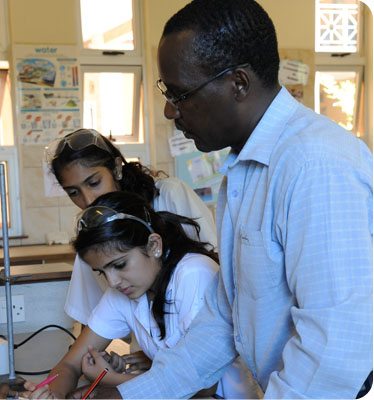 Outreach programmes
Outreach programmes
Our outreach progamming includes a course from the Professional Learning for Educators Series (PLES). The PLES programmes are designed by the Aga Khan Academies. They respond to the need to improve the standard of teaching and learning identified during extensive market research and interaction with government and departments of education.
The series includes programmes for teachers in various subject areas as well as specialised programmes focusing on skills and understandings related to education. We build professional competence by enhancing teachers’ subject knowledge and by examining how to teach that subject effectively. Each programme provides participants with a balance of intensive learning activities followed by an extended period of assisted application and observation within their own classrooms.
Strengthening curriculum and community
Through our professional development provision, we help create a professional community of competent, well-resourced teachers. These teachers will continue to support and collaborate with one another on materials development, by sharing best practices, and in establishing diverse academic, cultural and social projects.
Anahita Aman (Class of 2020): building on her Academy experiences to pursue International Development
Anahita Aman, a graduate of the batch of 2020 was here at the academy for 8 years. Currently pursuing History at University College London, she hopes to build a career in International Development.
Having spent her fundamental years at the Academy, Anahita credits the Academy for shaping her into who she is today, not just as a person, but in her interests and career choices as well. Anahita lived in the residences, and she majorly misses that feeling of knowing everyone and the close-knit community here, “which is hard to find in college when you are an international student in a different country” she expressed.
Anahita is currently preparing to pursue International Development as her career and the opportunities provided in school in terms of CAS (creativity, activity, service), and the internship programme at the time which felt like requirements, actually strengthened her application. She believes that the IB is more helpful than we assume it to be, as it instigates a voice inside you that you don’t get in the other curriculums which are a lot to do with mugging up. Anahita proclaims, “Even though you are working in criteria and a certain structure, you still have the space to express your viewpoint.”
The transition from school to university was one she found difficult “School does prepare you for all the writing and reading, but college just gets way more intense, the expectations are way higher, and in school, you have all these teachers who are constantly helping you and you can go sit with them but that kind of comfort is harder to find at university because it is a much larger community with thousands of students so comparatively school is a more close-knit community but university is daunting in that sense.”
The one experience that firmly stuck with Anahita was the Model United Nations (MUN). She served as the Secretary-General for AKAHMUN 2019-20. The MUN taught her a lot in terms of management, planning, communication, leadership and even finance as you work towards an event dealing with multiple stakeholders in the Academy. Known for her calm nature, Anahita was a completely different person in the MUN. She said “That was a fun thing, I never knew that side of me existed until I was put into the position. I didn’t know if I could do it but when you are in the atmosphere and put in that position I think some part of you just takes charge. That’s a new side of me that I saw, that boosted my confidence because I realised I could lead people if I needed to and it was a great thing.”
Anahita calls the Academy a second home, practically growing up there. She believes the IB, teachers, the residences, and her friends have helped and impacted her in more ways than one and have had a significant impact on who she is today.
